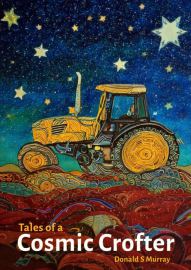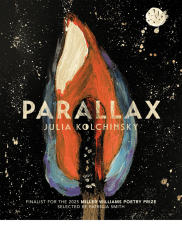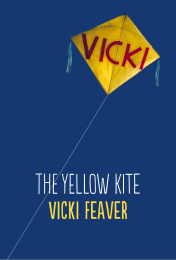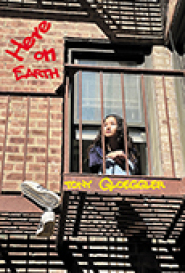
Donald S Murray , Tales of a Cosmic Crofter, Seahorse Publications, 2025,
ISBN: 978-1-0686421, £10.00, 49pp.
My expectation of this book, given it was about a crofter, was that it would be dour, monochromatic and sober, something along the lines of R S Thomas and his Welsh land workers. I could not have been more wrong. These poems fizz with invention and all the verve and colour of a graphic novel. The clue of course was in the modifier ‘cosmic’ and a cosmic vision does indeed prevail. This crofter (who remains unnamed) continually escapes the constraints that fence him in, achieving in so doing almost a super hero status.
This is not to say that Murray ignores the travails of crofter life. The island of Lewis, where the poems are set, is characterised as “bitter, windswept, bare”, redolent of a bleak endurance, the crofter’s lot “the misery he tills upon this earth”. Yet from this uncompromising reality Tales of a Cosmic Crofter charts a trajectory that transcends the quotidian grind, takes flight quite literally – this particular crofter drives a tractor that soars off into the sky and beyond.
It might be tempting to apply the term surreal to such a work but this would be to define its impact too narrowly. While it is outside a realistic portrayal it possesses the truth both of the everyday and the triumph, one cannot overstate this, of the inner life in all its richness. The mood of the book too is not simply on one note: there is playfulness certainly, exuberant leaps of the imagination, but throughout there is much dry humour too. Added to that a strong sense of celebration, both of a rich inner life and the crofter’s contribution to the local community, “the annual miracles/his labours came to show”, is genuinely uplifting while poignant moments such as episodes of unrequited love and the loss of a parent mean that painful aspects of life are not overlooked. However, overriding all this is the delight to be experienced in a sense of play allowed free rein and the wonder to be gained from contemplation of the vastness of the universe.
Another aspect explicit in the title is that of a tale rather than purely lyrical poetry, although all the ‘tales’ take the form of poems. However, there is no narrative development in terms of an overall plot. What we are given instead are key moments in the crofter’s life, some going back to his childhood but the majority in recent times. The opening poem, entitled appropriately ‘Genesis’, acts as a prologue, in which the crofter experiences perhaps his first leap into engagement with outer space. Our hero reimagines the humble vegetables he grows as celestial bodies, the moon a turnip, the stars potatoes. “In his mind,/he’d harvest constellations/spread above his croft.” His vision springs from the ground of his endeavours. This perspective runs through the collection, stabilising the more whimsical elements of the poems. The journeying across “kaleidoscopes and luminaries” is offset by prosaic details provided with equal relish such as the crofter’s tractor which also doubles as a spaceship: “His frigate grey, fourth-hand Massey Ferguson/with its twenty horsepower, four cylinder engine”.
Murray has a distinctive style. He combines free verse with subtle use of rhyme that sidesteps rigidity and stilted diction. When read aloud the poems are invested with a rhetorical power that stays on the right side of a register close to everyday language. A representative example of this is’ Astronaut Gear’, which is short enough to present here in full:
He never sent out scarecrows
to protect the ground
he scattered grain upon
until the day he found
a spacesuit from a doomed Apollo
mission he swore suited him
and wore to grant protection
to the soil that these birds all around
after he’d furrowed the fields of Pluto
and laid his crop of sweet potatoes down.
Murray impresses with how he builds a formally pleasing poem with simple words. There is a notable absence of florid poetic devices. However, end-stopped and internal rhymes contribute to a well-tempered euphony. Such characteristics are to be found throughout the collection. In short, Murray has a good ear.
There is only one example of a fixed form poem. ‘Exodus – The Sequel’ is a sonnet and for the most part a Shakespearean one. However the expected closing couplet does not materialise. Instead it is spread over three lines, the rhyme delayed, with the second line floating free of any corresponding rhyme:
…watching as Moses raised his mast
to divide the sea that stretched before him,
allowing him to break free from the confines of his past.
One is glad of the transgression, if it can be viewed as such. It seems to be much more fitting to the mood of the collection and Murray’s poetics generally that the delightful fluidity of expression is not suppressed by the regimented imposition of formal rules. This inclination only adds to the pleasure in reading the poems. Furthermore, the sense of liberation to be had is sustained on subsequent trawls through the book. The poems retain their freshness of impact.
It’s rare to find a book that makes one want to shout about it from the roof tops but this is definitely such a book. The term ‘instant classic’ is overused but I do foresee wide spread recognition for Tales of a Cosmic Crofter. It possesses an undeniable charm that I feel sure will never lose its impact.
I cannot finish this review without acknowledging the glorious, eye-catching cover design by Derek Mitchell. It captures perfectly the aura of Murray’s poems and adds even more incentive to make this a book to own.
David Mark Williams
To order this book click here
David Mark Williams writes poetry and short fiction. He has been shortlisted for the Montreal Poetry Prize and won Second Prize in the New Zealand Poetry Society International Competition. Two collections of his poetry have been published: The Odd Sock Exchange, Cinnamon, 2015 and Papaya Fantasia, Hedgehog, 2018.
Victoria Gatehouse, The Hawthorn Bride,
Indigo Dreams Publishing, 2024,
ISBN 9 781912-876860, £11, 77 pp.
Gatehouse yokes together her knowledge as a scientist with the poet’s imagination in this fine collection which takes as its starting point some of the trees and other plants the names of which are referenced in the Medieval Ogham culture, whose language is recorded in letters (the actual meaning of the word ‘ogham’) which resemble cross strokes angled down a vertical line, like a stickman version of a tree.
The poems actually referring to trees, which show the creaturely nature of trees and the connectedness of indigenous peoples to their land(scapes) are interspersed with a vast array of other topics, from her famous ‘Pornography for Pandas’ to a meditation of the Alaskan wood frog’s ability to survive thanks to an act of auto-cryogenesis. Various botanical and zoological themes makes an appearance, but she also attends to more domestic themes, such as her daughter’s hipbones ‘… that yawn Inside the bowl of her pelvis’ during an X-ray, and the tender moment of awareness that her son, rescuing spiders from sinks has ‘… hands almost / the hands of a man.’
Gatehouse’s lyrical, meticulously wrought verse holds the attention, and is rewarded with some excellent closing lines – often the hardest part to get right in a poem, I find. Recalling a childhood game of hide and seek, ‘In response to bracken’ neatly shifts from one sort of metaphorical hiding through a Thumbelina-esque transformation into the ‘fiddlehead’ of uncurling bracken fronds via finding ‘… the earth suddenly electric’ into the sobering recognition ‘… how much I still /want don’t want to be found’.
The carefully measured additional space between ‘want’ and ‘don’t want’ in the final line suggests so much with so little effort. Similarly, ‘My dog takes me back to dead things’ both ‘does what it says on the tin’ but also brings the poet to her knees, in an act of homage:
in the spread of that broken bird
a riot of shattered golds;
all I could do to hold him off,
neither of us able
to rub the stars out of his wings.
Beautiful and memorable language; that dog (who walks alongside many of the poems) has a lot to answer for!
Through subversion of myths about diamonds and toads and other fairy stories, questioning the canonical opinions of Darwin, crafting the rowan’s ‘… old spells to keep her from harm’ and inviting us to ‘stitch yourself a new skin (‘Yew Needle’) Gatehouse demonstrates the timeless benefit of sororal support. She also looks to the future, knowing her children’s paths may not be her own, and that the Calderdale landscape which clearly nourishes her writing is fragile as well as strong.
A most engaging collection, which may lead you also to Gatehouse’s previous books with Valley Press and Smith|Doorstop.
Hannah Stone
To order this book click here
Hannah Stone is the author of Lodestone (Stairwell Books, 2016), Missing Miles (Indigo Dreams Publishing, 2017), Swn y Morloi (Maytree Press, 2019) and several collaborations, including Fit to Bust with Pamela Scobie (Runcible Spoon, 2020). She convenes the poets/composers forum for Leeds Leider, curates Nowt but Verse for Leeds Library, is poet theologian in Virtual Residence for Leeds Church Institute and editor of the literary journal Dream Catcher. Contact her on hannahstone14@hotmail.com for readings, workshops or book purchases.
The University of Arkansas Press, 2025,
ISBN: 978-1682262689, 117pp, $19.95.
The first poem in Julia Kolchinsky’s visceral new collection, a poem titled “Neurodiverse sounds like universe but I can’t write that world so I try a villanelle,” ends on a colon, as though all that follows demonstrates her point:
The world is cruel to most, just look:
And how! A native of Ukraine whose son suffers from an unnamed but massively diagnosed neurological disorder that renders his behavior unpredictable and problematic, Kolchinsky conflates the two situations - the war and her family – in exploring the cruelties of existence.
Kolchinsky, who is Jewish and experienced Soviet religious repression in her native Dnipra, introduces the five parts that make up the heart of Parallax – Carbon, Hydrogen, Phosphorus, Oxygen, Nitrogen – with quotations from the writer, chemist, Holocaust survivor Primo Levy, no stranger to the cruelty of the world. These five elements, she notes in an opening epigraph, “are all formed inside stars. These same elements combine to form the molecules in human DNA.” In a word, they enable life.
Thus, the macrocosm and microcosm share the same basic building blocks, knitted together like a strand of DNA itself. This likewise informs the title, which Kolchinsky spells out on the same epigraph page: “Parallax is the apparent shift caused by viewing from two different vantage points.” Same celestial object, say, but different perspective.
Six poems throughout, titled “Why write another poem about the moon?” – three with the question mark in the title, three without, but all of them asking Job-like questions about the basic injustice of existence – emphasize the point. All of them look to the cosmos to confront the riddle of ceaseless, ruthless turmoil. The first one with the punctuation in the title (second overall) answers:
Because comfort is someone
staring at the same
celestial body. Parallax fixes
little—its geometry
of eyes—but holds us
accountable to distance.
Interestingly, the little accent at the bottom of each succeeding right-hand page is a phase of the moon, from new to full (quarter, half, three-quarter). The cosmic implications are key; everything is connected. Living and dead are a continuum; past and present are intertwined (“how our past / keeps filling our children’s mouths,” Kolchinsky writes in the first of two poems called “Dear Fellow Ukrainian Poet-Mama,”).
In “The Past Doesn’t Rise Like Smoke,” she elaborates the point: “But the past,” she writes,
doesn’t rise like smoke.
There is nowhere for it to go
missing. The past is every
fried potato and charred wick.
In the same poem Kolchinsky recounts her mother’s flight from Kyiv, the family evacuating ahead of the city’s fall to the Axis armies in September, 1941. They are celebrating Chanukah in Little Rock as she remembers it. Her mother’s father
stayed back, died, and after him,
she named her daughter
Light. He has to lie at Babyn Yar.
Where else? she asks, watching
the third-night candle smoke.
The lines, “This mouthful of history // we chew and chew until it chokes us,” ends the poem, “Watching Masha i Medved as Russia Invades Ukraine.”
As noted, Kolchinsky’s American experience that she writes about, in Arkansas, takes place during the Russian invasion of her native country, a trauma itself even without her personal challenges. The large and small endlessly merge and blend.
Against the backdrop of never-ending war, the tsuris involving her little boy is especially heartbreaking. His dependence on her is absolute, which deepens her sense of responsibility, her instinct to protect, to shield. In “Against Water,” in which Kolchinsky compares her son to salmon and steelhead swimming upstream, she spells it out:
Doctors give us acronyms
to name your urges. Pills
to curb them. To help
fit in they say.
Apparently autistic, the boy is obsessed with numbers and is emotionally fragile. He thinks about death a lot. “10 Months Since the Full-Scale Invasion as Math Problem,” an ingenious poem, includes the lines:
something inside of him is terrified
anyways = some part of him knows
he comes from a bloodied land
of missing bodies = knows his body
is closer to the dead than the living + he
doesn’t want to die + the dead live
in the letters of his name + no matter
how high he can count in days + years
numbers won’t lead to certainty =
each night he tells me, I must sleep in the dark…
In “The day after the longest day of the year” Kolchinsky fleshes out the obsession and the emotional rollercoaster it inevitably contains:
my son wakes
with an urge
to whirl & keep
whirring knowing no
stillness & in a single
day he has
too many
highest & lowest
points for even his own
must-know-the-exact-
count-of-everything
brain to quantify
We read about his problems socializing with other children, the difficulties he encounters in school (“What does the vulture say to the snowman(?) or how my son is learning to tell jokes(.)” and “Violet Is Another Name for Touch” among them). “Summer Camp Can’t Fit the Shape of Flame” begins:
“We cannot accommodate
the needs of your child”
means find another place
for him to be
The boy is aware of the destruction taking place in his mother’s homeland, to the extent he knows people are dying. Processing “death” is a huge problem. In “On the 100th day of the war in my birthplace:” she writes:
It’s been weeks since my last donation & I’ve stopped counting
our dead. Do you speak Russian? my son asks
every stranger. No? Why not? I do! My mom’s from Ukraine.
They always say how sorry they are…
The poem “Tell me it gets easier” begins “every new parent asks, / It doesn’t, I say bluntly,” but the “it” means so much more than parenthood, as Kolchinsky makes clear. It’s war; it’s everything – “the depths
are endless not because
they do not end but because
we’ve never reached the bottom.
But Kolchinsky ends on a note of hope. Throughout she maintains this conviction of hope. Bringing it all together in the final poem, “You Ask to Count All the Stars,” again looking to the cosmos, she writes:
What happens when you die? you ask.
How you already know the certainty
of endings. They are so far, I say
their light is still making its way.
You telescope your eyes—full
moons of wonder. They are forever
then, your voice all answer & grown,
staring, starting—star
inside each eye, in every beginning.
Maybe it’s all a matter of how you choose to look at something, after all, your unique angle on the world – not so much different from mine or anybody else’s, but unique, while acknowledging the same reality.
Charles Rammelkamp
To order this book click here
Charles Rammelkamp is Prose Editor for BrickHouse Books. His latest collection is The Trapeze Of Your Flesh (BlazeVOX Books).
Vicki Feaver, The Yellow Kite,
Mariscat Press, 2025, ISBN: 978-1-0686756-5-2, £9.00, 36pp.
Now in her eighties, Vicki Feaver’s poetry has always been characterized by fierce independence. It’s a feminist perspective, repressed female creativity at the heart of her concerns, but always underlying this is a strong will. This strength of character is at the center of her new work, too, which addresses the onset of Parkinson’s Disease. In “Ode to Parkinson’s,” the first poem in the collection, Feaver writes that though the disease began as her enemy,
You were in her for years
but waited to show
until her mind and body
were in danger of settling
into old-age stupor.
You jolted her awake:
challenging her to live
every minute left to her,
to burst into flower
like a cactus in the desert.
While not exactly extolling the benefits of the disease, she’s certainly looking at it as a worthy challenge and not wilting with defeat. The poem begins:
You began as her enemy:
slowing her steps,
shaking her left arm
and leg, scaring her
with what you’d do next.
If she’s not actually reconciled to Parkinson’s, she’s also decided not to become its passive victim. She has adjusted to the new reality. She has agency. If not necessarily Judith slaying Holofernes (Feaver’s 1993 poem, “Judith,” is one of her most famous), in poem after poem she confronts her nemesis, this neurological disease. “The Shaking Woman and the Kingfisher” ends with an allusion to the “brave / curious child, still alive / in her chest,” though she does concede at the conclusion to “The Shaking Woman in the Snow” that “It doesn’t take long… / to lose the will to struggle up / and stumble on, to fall asleep / in the snow’s deceiving heat.” Except that she hasn’t yet.
Still, Feaver is not in denial, turning a blind eye to the disease, pretending it’s not there. She knows how serious this is. In poems like “Her Symptoms” and “Her Lost Words,” she unflinchingly details the losses, without self-pity. The latter is particularly troubling for a poet, a woman who thrives on words.
Her dog’s search tool was his nose.
Hers was the faulty circuitry of a brain
that lost words and found them
and lost them again, as if the inside
of her head was a shaken snow-globe
where words, mingling with the storm
of whirling flakes, settled randomly,
revealing some and burying others.
“The Shaking Woman Takes a Bath” is particularly hard to read as she writes about filling the tub one morning – though she’s always preferred the efficiency of a shower – swirling orange oil into the hot water, sinking into the comfort. It’s when she tries to get out of the tub that the problems happen, falling back in, banging her coccyx, trying again and again to rise, on the verge of panic, until finally, “trembling and triumphant,” she maneuvers herself out of the tub and onto the bath mat. In “Parkinson’s Speaks,” the disease taunts her with her infirmity, comparing her to the woman in Edvard Munch’s “The Scream,” pointing out the broken hip, the quavery voice. That broken hip, which happened while she was walking her dog, is detailed in “Her Fall.”
The image of the cactus bursting into flower at the end of “Ode to Parkinson’s” is significant. Flowers have always been important to Feaver. She has noted that they are sexual organs, after all. Who can forget those lines from “White Tulips”?
I fly into the white
bowls
of flowers, emerge sticky with nectar
and pollen, alight on your neck, crawl
under your shirt, and sting.
Flowers continue to be an image of vitality. The collection ends with three, “Berries in a Plague Year,” “Melancholy Thistle” and “Campanula,” which all contain hopeful images delicately described. Similarly, the poem, “The Red Rock,” about a rock she found during a stroll on the beach, which she compares to a damaged brain, riddled with holes, ends on a note of triumph. She is keeping that rock as a reminder:
I keep it as a memo
of my mind’s workings:
all the blind ends it arrives at
and occasional triumphs —
after days of drilling in the dark,
breaking through into brilliant light.
Indeed, the title poem, which harks back to previous times,
lets the reader know that she is not defeated. “The Yellow Kite,” which concludes the collection, reveals her state of mind and the strength of her will:
Diamond-shaped,
the yellow of shiny buttercups,
it brightens all
the dark days of my life.
My ten-year-old son
made it secretly
for my birthday
the year his father left.
He stitched slots for the crossbars,
attached a pale blue tail
and appliquéd VICKI
in bold red capitals.
Watching as it soared,
carrying my name into the sky,
swooping in a dance
with the wind like a fiery bird,
my spirit that I thought
would never recover
struggled up from the floor
and flew into the air.
Vicki Feaver’s spirit continues to soar. This is a brave collection, one from which we can all take inspiration, from its determination as well as its abundance of lyrical images from a mind very much in charge of its thoughts.
Charles Rammelkamp
To order this book click here
Charles Rammelkamp is Prose Editor for BrickHouse Books. His latest collection is The Trapeze Of Your Flesh (BlazeVOX Books).





